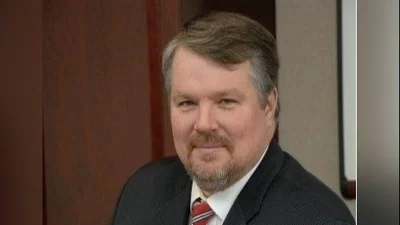Levin College of Law - University of Florida issued the following announcement.
TWO CENTURIES OF THE EQUAL RIGHTS AMENDMENT
University of Florida Levin College of Law; Center for Governmental Responsibility; Center for Gender, Sexualities, and Women’s Studies Research; and the University of Florida Journal of Law and Public Policy present Two Centuries of the Equal Rights Amendment Symposium.
This event is offered free via Zoom and has been approved for 6.5 general CLE credits by The Florida Bar. Registration is required to receive the Zoom link.
About the ERA Symposium:
The ERA was first proposed in Congress in 1923. It took 49 years before it made its way out of Committee and to the floor of the House for a vote. And even that required Rep. Martha Griffiths to use a little-known procedure to vote it out of committee where it had been stalled for decades. The ERA was sent to the states on March 22, 1972. It needed 38 states to become the Twenty-Seventh Amendment; however, it only reached 35 ratifications before the momentum stopped as the Congressional deadline for ratification passed. Congress had saddled the ERA with a seven-year deadline that was extended for another three years and three months. When the time limit expired on June 22, 1982, 35 states had ratified and 5 had purportedly rescinded. In 1992, one of the original amendments proposed by James Madison, involving Congressional pay, was ratified after more than 200 years, taking the place of the ERA as the Twenty-Seventh Amendment. But with extensive effort, Illinois, Nevada, and Virginia have now ratified the ERA, reaching the 38 required by Article V of the Constitution. It took 48 years for the ERA to receive full ratification by the states.
Now, we sit at a crossroad – virtually every procedural question left open by Article V is presented by the ERA. May Congress limit the power of the states to determine when to ratify an outstanding amendment? May the states rescind their ratifications prior to the amendment becoming valid, thus undermining the ratifications of subsequent states? May the Archivist refuse to publish the ERA even though it has received the required number of ratifications? Does the Department of Justice have authority to issue binding legal opinions in a constitutional process that has no role for the executive? This conference will explore these questions, and others, as to the current validity and future applicability of the ERA. It has taken 97 years for the ERA to meet the technical requirements of Article V. But will it take its rightful place as the Twenty-Eighth Amendment? And will it be Congress, or the courts, that make it happen?
Conference Schedule:
FRIDAY, SEPTEMBER 25
- 9:45am-10:15am | Welcome by Dean Laura Rosenbury, Dean Jon Mills, Winsome McIntosh
This Symposium will address many questions. May Congress limit the power of the states to determine when to ratify an outstanding amendment? May the states rescind their ratifications prior to the amendment becoming valid, thus undermining the ratifications of subsequent states? May the Archivist refuse to publish the ERA even though it has received the required number of ratifications? Does the Department of Justice have authority to issue binding legal opinions in a constitutional process that has no role for the executive? This conference will explore these questions, and others, as to the current validity and future applicability of the ERA. It has taken 97 years for the ERA to meet the technical requirements of Article V. But will it take its rightful place as the Twenty-Eighth Amendment? And will it be Congress, or the courts, that make it happen?
- 10:20am to 11:40am| Session One – Birthing an Amendment: Litigation
- This panel examines the issues raised in Virginia v. Ferriero, the lawsuit asking the district court of the District of Columbia to order the National Archivist to publish the Twenty-Eighth (Equal Rights) Amendment and certify its ratification by three-fourths of the states. Virginia’s Deputy Solicitor General, who is spearheading the case on behalf of the plaintiffs, along with attorneys representing dozens of amici, will discuss the legal issues before the court. The Outreach Director of VoteEqualityUS!, a grassroots organization advocating gender equality under the law, will place the Ferriero litigation within the context of national and state policymaking. While focusing on the particulars of the Ferriero case, this panel will explore the intersectionality of litigation and policymaking strategies.
- Michelle Kallen – Deputy Solicitor General of the Commonwealth of Virginia
- Vanessa Tussey – Associate, Boies Schiller Flexner, LLP
- Tonja Roberts Brooks – Co-founder and Outreach Director, VoteEqualityUS!
- Jodi Siegel – Executive Director, Southern Legal Council
- Trish Wallace (Moderator) – Legal Analyst, VA Ratify ERA
- 12:00pm-1:00pm| Session Two – The First Century: History of the Amendment
- This panel includes expert legal historians and feminist scholars discussion the history of the struggled for the ERA, what it meant in 1923 and what it means today. Attitudes toward the ERA have changed since 1972 and equality on the basis of sex means something different than it meant in 1923. The world has changed dramatically since the ERA was first conceived and when it was sent to the states for ratification. Exploring how the world has changed will allow us to frame reasonable expectations for the ERA’s future.
- Reva Siegel – Nicholas deB. Katzenbach Professor of Law, Yale Law School
- Brandy S. Faulkner – Gloria D. Smith Professor of Black Studies, Virginia Polytechnic Institute and State University
- Julie Chi-Hye Suk – Dean of Master’s Programs and Professor of Sociology, City University of New York
- Danaya Wright (Moderator) – Clarence J. TeSelle Endowed Professor of Law, University of Florida Levin College of Law
- 1:10pm – 2:15pm | Session Three – Making Equality Happen: The Political Will to Make Change
- This panel will include lawmakers and activists who will be active in making the ERA effective and viable. Governments will need to adjust their laws to implement the requirements of equal rights on the basis of sex, and how the groundwork is laid will be crucial to the next century of equality.
- Senator Pat Spearman – State Senator, Nevada
- Senator Linda Stewart- State Senator, Florida
- Martha Barnett (Moderator)
There are countless ways in which an ERA could change lives and change society. Whether it will do so will depend on lawmakers, judges, litigants, and plaintiffs. Family, employment, education, the criminal justice system, and a host of other aspects of our personal and political lives could be affected as the ERA grows and develops. These sessions will be hosted by experts in a variety of fields exploring different challenges and opportunities created by the ERA.
- 2:30PM – 3:30pm | Breakout Sessions I
- Employment Law – Rachel Arnow-Richman, University of Florida Levin College of Law, and Stephanie Bornstein, University of Florida Levin College of Law
- Family Law – Jill Hasday, University of Minnesota College of Law, and Laura Rosenbury, University of Florida Levin College of Law
- Civil Rights and Social Justice – Valorie Vojdik, University of Tennessee College of Law, and Shelbi Day, Family Equity Council
- Taxes and Wealth – Allison Tait, University of Richmond College of Law, Carla Spivack, Oklahoma City University College of Law, and Lee-ford Tritt, University of Florida Levin College of Law
- Constitutional Law – Teri Baxter, University of Tennessee College of Law, and Berta Esperanza Hernandez-Truyol, University of Florida Levin College of Law
- 3:40pm – 4:40pm | Breakout Sessions II
- Reproductive Rights – Mary Ziegler, Florida State University College of Law, and Danaya Wright, University of Florida Levin College of Law
- Criminal Law – Sarah Wolking, University of Florida Levin College of Law, and Jacqueline Hutchins, State Attorney’s Office, 4th District, Florida
- LGBTQ+ Rights – Michael Higdon, University of Tennessee College of Law, and Merritt McAlister, University of Florida Levin College of Law
- Environmental Law -Christine Klein, University of Florida Levin College of Law, and Joan Flocks, University of Florida Levin College of Law
- Welfare and Social Entitlements – Deborah Dinner, Emory Law School, and Nancy Dowd, University of Florida Levin College of Law
- 4:50pm – 5:30pm | Bringing It Back Together
Approved for 6.5 general CLE credits by The Florida Bar


 Alerts Sign-up
Alerts Sign-up